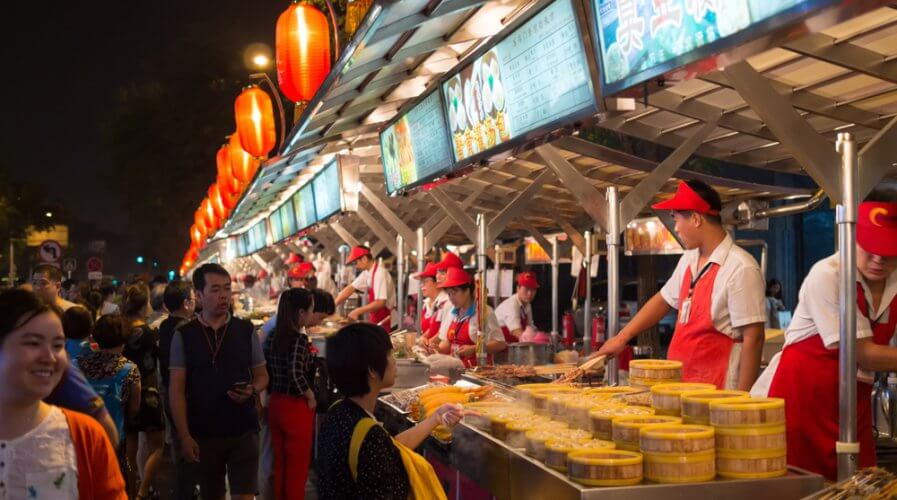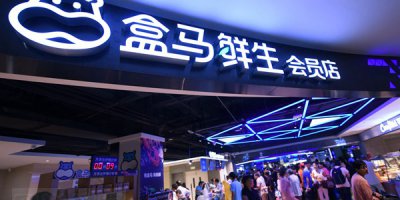
Night in China is bustling with activity, especially online. The convenience brought on by smartphones means people can order food, book tickets, or make payments regardless of the time of day. Source: Shutterstock
In China, e-commerce doesn’t sleep
NIGHT is for shopping in China. To many, 9 pm is way past the end of a workday, but that’s just the beginning of an influx of online orders for supper.
Food preferences vary from city to city – while Beijing enjoys fried chicken and barbecued sticks of meat, for example, Chengdu tucks into hot pots.
That’s data recently released by Alibaba’s Ant Financial on the country’s consumption patterns at night.
The report analyzed data across its ecosystem of services, including mobile wallet Alipay, e-commerce platform Taobao, food delivery services Koubei and Ele.me, video streaming site Youku, smart logistics Cainiao, and ticketing platforms Damai and Taopiaopiao.
From the results on consumer behavior, Alibaba can personalize services to increase user stickiness and improve targeted advertising; which would, in turn, generate more data and help boost revenues.
This is a position that China’s internet giants like Alibaba and Tencent are uniquely in. A comprehensive network of services allows the companies to analyze the huge amounts of data generated on its various platforms.
Mobile payment platforms like Alipay and WeChat Pay have made it convenient for consumers to use smartphones for various functions – including order food, shop online, and pay bills – regardless of what time it is.
According to the report, people are most actively shopping on Taobao at 10 pm, with online payments peaking at 11 pm.
The bulk of Youku’s viewer too, log in after 10 pm to watch popular Chinese TV drama Guardian.
In general, Shanghai residents enjoy going to the cinema, recording highest ticket sales in the country. Nanjing residents, on the other hand, are bookworms: The city makes the most payments to bookstores at night.
Residents of capital city Beijing tend to be early birds, many heading out at 5 am in taxis. In contrast, Shenzhen sees its inhabitants still on the way home at 4 am. Most of China is asleep by 4 am.
Alibaba’s report reflects a country that (almost) never falls asleep. From public services that are available 24 hours a day, to the microeconomy powered by street vendors. The country’s driving forces are enabled by e-commerce.
READ MORE
- Ethical AI: The renewed importance of safeguarding data and customer privacy in Generative AI applications
- How Japan balances AI-driven opportunities with cybersecurity needs
- Deploying SASE: Benchmarking your approach
- Insurance everywhere all at once: the digital transformation of the APAC insurance industry
- Google parent Alphabet eyes HubSpot: A potential acquisition shaping the future of CRM




